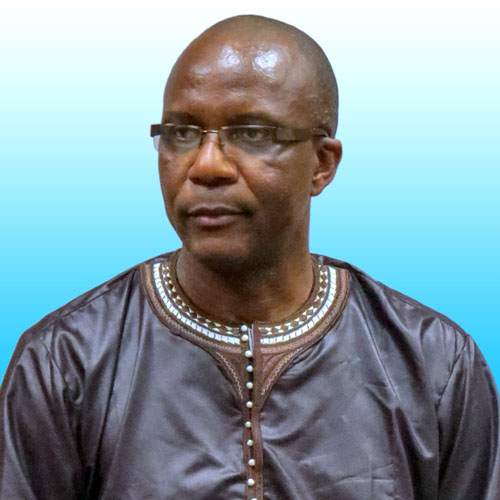Since its creation in 2001, the protection of employees in the public and private sectors has always been at the core of NASSIT (National Social Security and Insurance Trust) operations.
NASSIT is Sierra Leone’s pension scheme administrator. The social security agency has held several town hall meetings and briefings for the people of Sierra Leone to understand its operations and procedures.
The previous week, NASSIT in collaboration with IMC (Independent Media Commission) and SLAJ (Sierra Leone Association of Journalists) held a conference for owners of media institutions where they were reminded about key provisions of the NASSIT law.
Proprietors, editors, station managers and media stakeholders were educated on the scheme and the need to comply with the NASSIT laws.
The aim was to explain to them the relevance of NASSIT to media workers in Sierra Leone. Media institutions, by law, are business institutions registered with the IMC. Media owners or operators employ workers in their institutions for services to be rendered.
During the conference, Regional Offices Coordinator for NASSIT, Mohamed Sam took participants through relevant provisions of the NASSIT Act 2001. The provisions which are highly protective of employees prescribe the duty of employers and punishment for breaches.
Section 30 of the Act is about registration, section 27 deals with penalties for non-payment of social security, 32 is about non-submissions of document and 32 talks about the crime of obstructing a NASSIT official.
The Regional Offices Coordinator also informed participants that the law made it mandatory for existing institutions and employees to be registered with NASSIT so that either a benefit or grant could be paid when a contingency occurs.
“NASSIT pays benefit to workers in the occurrence of a contingency. The worker or survivors just need to produce documents,” he said.
Although NASSIT seems ready to work in the interest of its contributors, the occurrence of several challenges tends to threaten the scheme.
Sam identified non-registration and non-payment of NASSIT contributions as the main challenges.
He also spoke about the close relationship between the NASSIT and IMC laws noting that the two laws complement each other.
The IMC Act ensures that media institutions are registered while NASSIT ensures that the employees are protected,” Sam explained.
He cited section 23 of the Act which is applicable to every employer and employee.
The provision defines employer as the owner of an establishment or a person who has ultimate control over the affairs of an establishment, or a manager, managing director, an agent.
The law says all employers must register its workers 30 days after the commencement of the establishment.
The NASSIT law defines a worker as any person employed in any scheme of work in accordance with the expressed or implied terms of contract of the employer or apprenticeship from the employment.
Mr Sam also went on to explain that one could register with the NASSIT scheme by filling an SSS1A form.
After registration, he says, 5% of the workers’ monthly earnings and 10% of employers contributions are paid to the scheme.
One of the IMC commissioners, Mustapha Kokofele Sesay dilated on the role of the media in the promotion of NASSIT activities.
In his presentation, he placed emphasis on the need for partnership between the media and NASSIT.
“For the promotion of NASSIT activities by the media, strong collaboration and strategic partnerships must be built,” he said.
The relationship between NASSIT and the media rests on several components.
Awareness raising was the first component to be highlighted by commissioner Sesay.
Under the awareness raising component, the media educate the public about NASSIT operations.
Apart from the public education campaign, the media can also ensure that NASSIT lives up to its statutory mandate, obligations and responsibilities.
Media institutions can also play a big role in ensuring full compliance with relevant provisions of the NASSIT Act and its regulations and procedures.
NASSIT, Commissioner Sesay said, needed popularisation and visibility to continue to enjoy public confidence.
Under this portfolio, the media must provide sufficient information on all NASSIT investment throughout the country. The objective for such promotion, he said, was to ensure that the contributor’s money is properly utilised and there is value for money.
Providing media coverage on the activities of NASSIT, Commissioner noted, had to be reciprocated. He said NASSIT could patronise with media institutions by giving them adverts and ensure prompt payment.
He warns that in the award of adverts, advertorials or supplements, NASSIT should not discriminate media houses.
“NASSIT promotional features, supplements and adverts must be distributed to newspapers by observing the principle of regional balance,” he said.
Arguably, the biggest and most strategic partnership between the media and NASSIT is in the importation of materials and broadcasting equipment.
Sierra Leone is a country widely known for media poverty.
Various researches and studies have shown that owners of media institutions are still finding it difficult to grapple with the cost of newspaper production.
Paying salaries and registering their staff with the NASSIT scheme remains the greatest challenges confronting the media profession.
A great number of newspapers have been forced out of the market since they could not smoothly navigate the economic terrain. For most newspapers, journalists survive through the Press card, a situation that has resulted into the ‘Yellow Press’ syndrome.
The ‘Yellow Press’ phenomenon also known as the ‘Attack Collect’ and ‘Defence Collect’ is about blackmailing highly placed personalities in society. It is hoped that with the NASSIT investment, unprofessional practices within the media would come to an end.
Another IMC commissioner who is also lecturer at the Department of mass Communication in the University of Sierra Leone, Rev. Dr Father Suma warned that the media should not be allowed to survive through that way.
It is out of the desire to have a prosperous media that media stakeholders are encouraging credible investors to come on board.
With passion and commitment, the media would be there, come what may.


